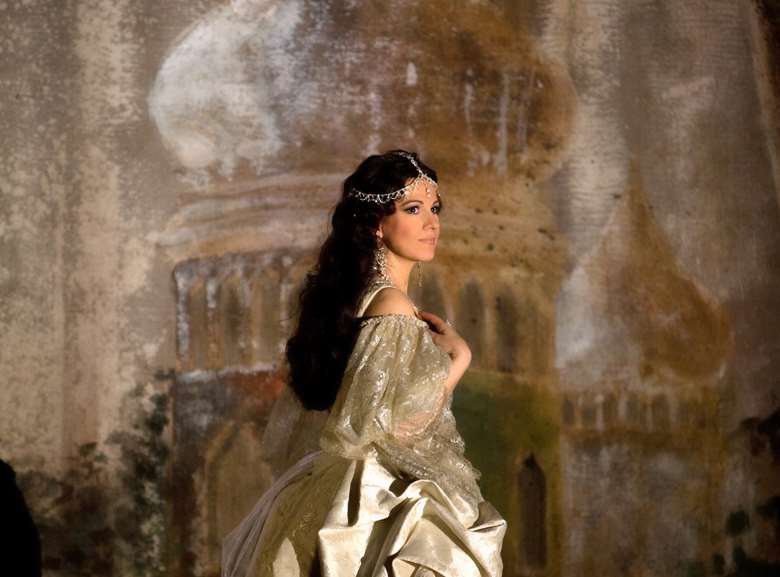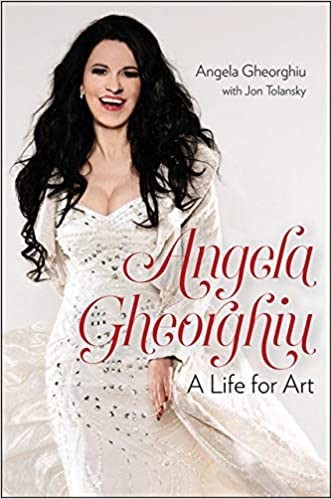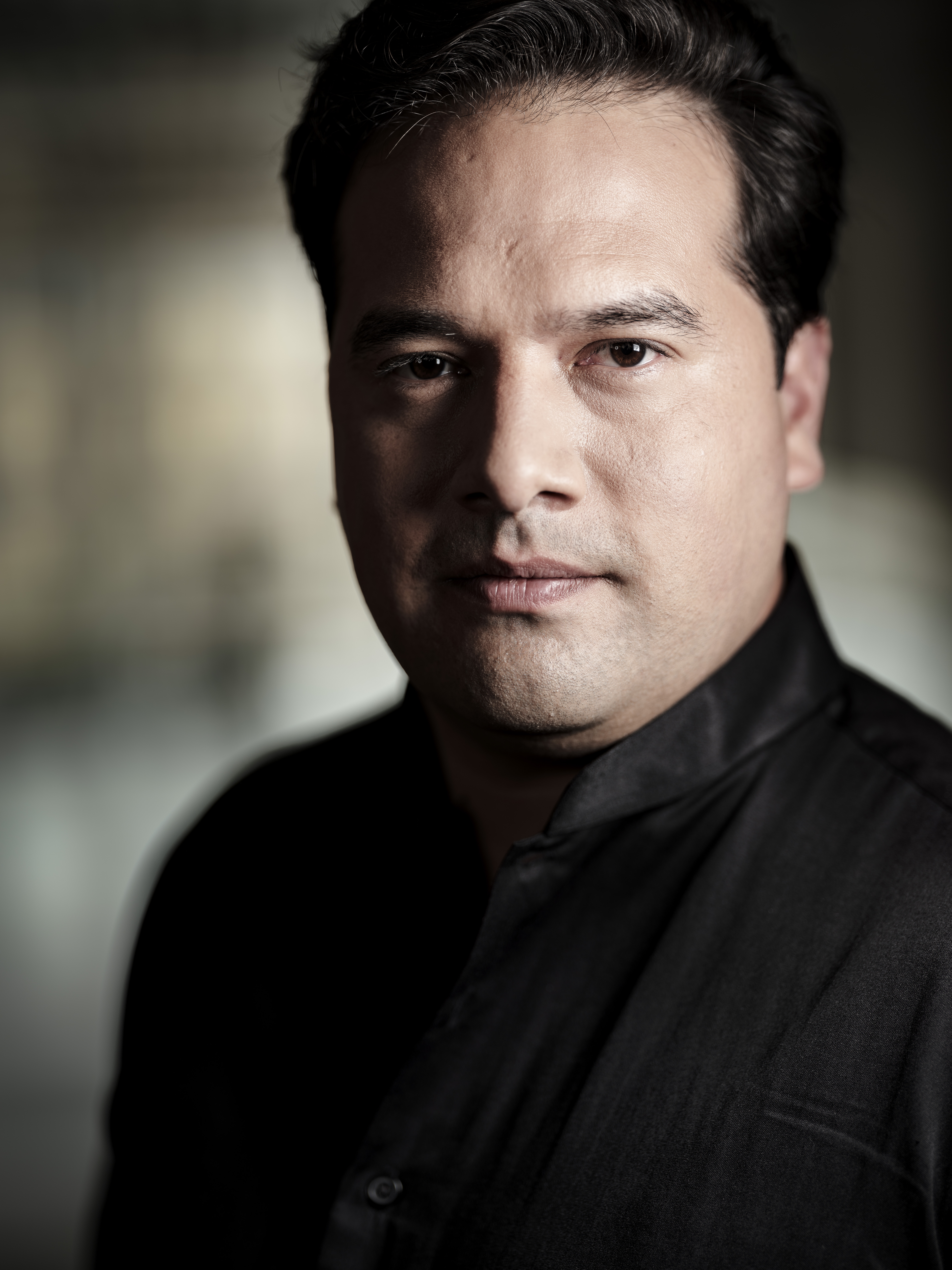Angela Gheorghiu: A gala anniversary for the future of music
Jon Tolansky
Tuesday, January 11, 2022
Jon Tolansky sits down with soprano Angela Gheorghiu to talk about the last three decades in advance of her 30th anniversary with the Royal Opera House

‘I am certain that for the future generation as well as the present generation of this world, music and opera can help us all in our lives.’
The great virtuoso soprano Angela Gheorghiu declares her passionate faith in music ahead of her appearance in the title role of Puccini’s Tosca at the Royal Opera House (ROH) in February. This series of gala performances has been programmed as a 30th anniversary celebration of her ROH debut in 1992. It was on 16 May that year, the first night of a revival of John Copley’s production of Puccini’s La Bohème, that the public and critics were so deeply impressed with the radiance and vocal command of the new very young artist who was making her debut as Mimi. She had in fact sung a single performance in the role of Zerlina in Mozart’s Don Giovanni shortly before to an audience who were immediately struck by her brilliant range of vocal colours and nuances and imaginatively intelligent acting.
Following these striking beginnings, Gheorghiu was to create something even more remarkable in the same House two years later, truly making history with her performance of Violetta in a new production of Verdi’s La Traviata, directed by Sir Richard Eyre and conducted by Sir Georg Solti. Creating a buzz even during rehearsals, the House predicted an exceptional reception, and the premiere became a legendary event overnight; this was reinforced by BBC Two which, in a totally unprecedented move for an opera or any classical music performance, cleared its schedule at short notice to televise the production’s fifth performance live.
Peter Maniura, who shared the direction for the BBC2 televised performance with the celebrated Sir Humphrey Burton, described Gheorghiu’s Violetta as ‘the sensational central performance... an almost perfect union of voice, acting ability and physique du rôle’. Even the highly critical Sir Georg Solti declared ‘the girl is wonderful, she can do anything’. Since then, Gheorghiu’s exceptional vocal virtuosity and vividly animated characterisation have graced the ROH stage in many roles, including, of course, a new production of Tosca made specifically for her by Jonathan Kent in 2006.
The upcoming anniversary performances are especially meaningful for her: ‘More than 30 years ago it was my secret dream to sing at the Royal Opera House Covent Garden, and it came true. Imagine a student – in 1990 I had just finished my studies at the Conservatoire in Bucharest and for my graduation I sang Mimi in a performance of La Bohème at the Cluj-Napoca Opera. Although the Ceaușescu government had fallen in the Romanian Revolution several months earlier, the authorities insisted the performance was to be given in the Romanian language (which had always been the way with all operas in Communist Romania) instead of in Puccini’s Italian original. I had asked if we could all sing in Italian, and they refused, but still I had my dream of singing it at the Royal Opera House, in Italian of course. So, to have the opportunity less than two years later to make my international debut actually singing Mimi at Covent Garden was a huge responsibility for me, I must tell you, and I still feel that after 30 years.’
I am certain that for the future generation as well as the present generation of this world, music and opera can help us all in our lives.
‘I am full of gratitude to everyone at the Royal Opera House: for their support then, for their support all through the last 30 years, and for their support now. The relationship I have with the Royal Opera House, with London, with the public in London – I really adore this: they are my family, my life, my soul, they are everything.’
Gheorghiu is reuniting with her ‘family’ for the first time since the Coronavirus pandemic drove the music world into serious disarray and anxiety: ‘For two years we have all being living such a different life. From the time of my debut at the Royal Opera House until the pandemic struck, each year everything in my career and especially related to London – my roles at Covent Garden, the productions there, concerts and recordings with the London orchestras, a film of Tosca – was for me just a perfect world. Now we all have been facing such a huge challenge in the last two years, and as everyone knows it has been especially trying for the operatic world, as well as the theatre, ballet and concert worlds.’
‘It has been a time when many people having been looking back – and sometimes I have felt that, compared to 30 years ago, the artistic world maybe has less patience, maybe not as deep an involvement with values as it used to – but I must strongly say that I feel very positive for the future in music and opera. I am more than 100% certain that the power of music and opera and the power of the talent for performing it will always continue to move the hearts of people, the hopes of people, and the trust in people, generation after generation. I really believe that harmony is the truth of life. The harmony in music puts us all together with the same language – this common language has the same power and meaning for different races, religions, beliefs, loves: all the beings that are breathing on this Earth. So, all the souls in this world are related to harmony.’
Gheorghiu’s analogy would have appealed to Verdi. Many of his greatest operas profoundly expose the tragedies that social, racial and religious prejudices bring about, and Violetta in La Traviata is surely one of the most heart-breaking of all his victims – even more so because her personality is so immensely appealing and so, especially for the time (mid-19th Century), extraordinarily brave. Capturing her vulnerability and her strength all at once is one of the most demanding challenges in opera, because Verdi made tremendous vocal and theatrical demands on her – it was Gheorghiu’s truly ‘sensational’, as Maniura commented, execution of these that brought her and the ROH such exceptional acclaim.
‘Working with the two wonderful artists Sir Georg Solti and Sir Richard Eyre is one of the most precious memories of my life, and so is the really tremendous support I had from absolutely everyone in the theatre – it was a Covent Garden love affair, I must confess. I am so happy that Sir Richard’s production is still in operation there, and I must tell you that from then to this day all the sopranos who perform Violetta that I have known have always said to me personally ‘I dream to sing in this production – it is the most beautiful La Traviata ever!’ Of course, Violetta Valéry is one of Verdi’s very greatest creations and it is hugely demanding to perform, especially as the soprano has to capture the fragility, the strength and the nobility of soul in the character – even though she does not come from an aristocratic background, Violetta was born with that noblesse. I am not a courtesan, but I identify so deeply and closely with Violetta.’
Another mark of Gheorghiu’s remarkable versatility is her close identification with a wholly different operatic character – Tosca: another one of her greatest successes. The ROH production of Tosca, recorded in 2011, can be seen on DVD, as can an ingenious 2001 studio film directed by Benoît Jacquot. In both cases, the nightmare scenario Tosca endures at the sadistically blackmailing and lusting hands of the Chief of Police, Scarpia, has a mesmerising truthfulness and realism. ‘Sing as you speak – for me this is the law of singing,’ Gheorghiu says, and thus she banishes for this writer the quite often voiced criticism that Puccini had written an exaggerated melodrama.
‘In Tosca you see what can happen when people have power – and I have had personal experience of it! I remind people all the time that I lived and grew up in Romania in the Communist era when we had the most feared secret police in all Europe – the Securitate. The relationship, if you can call it that, between Tosca and Scarpia is very much like the kind of situation that could exist between a young lady with talent and the Securitate. Tosca is the star diva of Rome during the Napoleonic Revolution and that made her a very powerful person – which is a lot of what excites Scarpia’s lust for her – and in my country too, a young lady with a big artistic talent was a very powerful person in the land, and this could make her a victim of Securitate blackmail. So, although Tosca lived more than 200 years ago, I can very much identify with her situation – and especially as, like Tosca, I am also an opera singer!’
Indeed, although during Ceaușescu’s dictatorship Gheorghiu had yet to make her operatic debut, she was already well known as a young rising star in Romania while she was at the Conservatoire. She was a prime guest on a popular Romanian television programme called Do You Like Opera? which was presented by the influential producer Luminița Constantinescu and she was also frequently invited to sing on television programmes that were organised and presented by Iosif Sava, whose Serate muzicale (Musical Evening Events) garnered vast audiences.
I am full of gratitude to everyone at the Royal Opera House: for their support then, for their support all through the last 30 years, and for their support now.
As well as famous operatic arias and art songs, Gheorghiu would occasionally sing new contemporary compositions on these shows as she has always been strongly committed to new music when she has felt it has had something really important to say. In 2007 she created the role of Fanny in Vladimir Cosma’s opera Marius et Fanny, and very recently she was the chosen soprano of Vangelis for his CD album composition Juno to Jupiter, inspired by NASA’s Jupiter exploration mission – it is her second collaboration with him.
‘Vangelis is the father of all electronic music – he is to electronic music what Bach is to classical music. He is also one of the most special people I have ever met. To hear his voice and see his face when he speaks about music and love and humanity is to hear and see such an impressive and rich soul that is very, very rare on this Earth – and that is all in his music. He is a genius – and if I try to explain that, I can’t because we cannot explain genius no matter how hard we may try to. But I can tell you that he works so much, really intensively, for each sound, for each vibration of the sound. He has a whole world in his mind and his soul all the time – and now he is intending to compose a Requiem for our time which I am very eager to discover! I am such a lucky artist to know this man, and it is a uniquely powerful feeling to sing the premiere of a new work of his, just as it was for me to premiere Marius et Fanny.’

 And so, as we and the ROH celebrate the 30th anniversary of this great artist’s debut at Covent Garden, Angela Gheorghiu is as passionate about the present and the future for music as she is about the past. This shines through in her book Angela Gheorghiu - A Life for Art, which candidly and movingly recounts the inspirations and the challenges, the joy and suffering of a singer profoundly and courageously devoted to music as her greatest love.
And so, as we and the ROH celebrate the 30th anniversary of this great artist’s debut at Covent Garden, Angela Gheorghiu is as passionate about the present and the future for music as she is about the past. This shines through in her book Angela Gheorghiu - A Life for Art, which candidly and movingly recounts the inspirations and the challenges, the joy and suffering of a singer profoundly and courageously devoted to music as her greatest love.
‘My life was and is still so rich because it is through music that I have had a special richness in life, in spirituality, in religion, and in being open to and understanding with everybody. And that includes being open and understanding about issues that are now a wave of great concern going through the world – equality in gender, race, and religion, altogether many matters that people suffer so much for.’
‘Although I have had the opportunity to fulfil my life’s purpose as an opera singer, it has been a tough life – but one in which music has been my salvation.’ Angela Gheorghiu was married to Roberto Alagna from 1996 until 2013 and she comments that: ‘Even though it was very difficult to be in a situation where two opera singers of the same level were living a married life, music helped us to be in love again when we sang together. Very importantly, it also helped us both to accept going forward with our lives in different directions in due course, because to be true to the music we love is the most important value of all for our lives.’
‘As I have said in the book, music has been the greatest truth for me, and I have tried to put some reality in the picture of my life while never forgetting the reason for my work. It is the same reason we are speaking today and the reason for that number 30 – that reason is music, and love for music. Everything I live for in my life is striving to be as faithful as I possibly can to all that the composer has asked for in his music and to be 100% credible for the audience. This marriage between the artist, the composer’s music and the public – this is my life, and I need it each day of my life, which is why I have the deepest gratitude to everybody at the Royal Opera House, Covent Garden’.
Angela Gheorghiu will be reprising the role of Tosca at the ROH in a production directed by Jonathan Kent. You can find out more about dates, times and tickets on the ROH website.